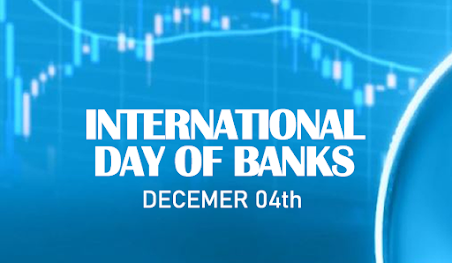Central Bank Digital Currency Development enters the next phase. Many of the world’s monetary authorities are seeking more guidance on how best to pursue digital forms of central bank money. Central bank digital currencies can improve payment systems as well as financial inclusion—if they are appropriately designed. If not, they could pose risks. While not all countries may see an immediate case to deploy a CBDC, many countries are exploring Central Bank Digital Currencies so they will have the option to introduce one in the future if it becomes pertinent for them. Benefits are more likely to come in time, following the policies pursued by countries and the private sector’s response, as well as the evolution of technology. In most cases, it would be useful for countries to continue exploring CBDC, carefully and systematically, as IMF Managing Director Kristalina Georgieva noted in her recent speech at the Singapore Fintech Festival. The Bahamas, Jamaica, and Nigeria have already introduced CBDCs. And more than 100 countries are in the exploration stage. Central bankers in Brazil, China, the euro area, India, and the United Kingdom are at the forefront. Follow the conversations with the hashtags: #multilateralBanks, #Developmentbanks #4December, #InternationalDayofBanks, #bankingsystems, #digitalbanking on social medias.
The United Nations General Assembly have invited all Member States, the organizations of the United Nations system and non-governmental organizations to observe the International Day of Banks 2023, in a manner consistent with national priorities, in order to highlight the role of banks in contributing to achieving sustainable development; The UNGA have also Invited the Department of Economic and Social Affairs of the Secretariat,the United Nations Development Programme, the United Nations Conference on Trade and Development and other relevant United Nations entities to facilitate the observance of the International Day of Banks in collaboration with other relevant organizations.
World Bank Live at COP28.
Join our live-streamed conversations and announcements from COP28, covering climate action, climate and development priorities, water, infrastructure, and more.Watch All live Events
PAST EVENTS
- Aligning to the Global Biodiversity Framework: Principles for Responsible Banking Nature Guidance Launch.
22 November 2023 – WEBINAR
UNEP FI is thrilled to introduce its new Principles for Responsible Banking Guidance on Nature Target Setting. Developed in collaboration…
- Empowering Climate Resilience Through Banking: Principles for Responsible Banking Adaptation Guidance Launch.
28 November 2023 -WEBINAR
UNEP FI is delighted to unveil its latest milestone report, the Principles for Responsible Banking Guidance on Climate Adaptation Target Setting…
28 November 2023 -WEBINAR
UNEP FI is delighted to unveil its latest milestone report, the Principles for Responsible Banking Guidance on Climate Adaptation Target Setting…
- Exploring human rights and environmental due diligence regulations for banks.
25 September 2023 – ONLINE
UNEP FI is partnering with ECOFACT to host a series of webinars on key thematic issues in emerging sustainable finance…
25 September 2023 – ONLINE
UNEP FI is partnering with ECOFACT to host a series of webinars on key thematic issues in emerging sustainable finance…
- Financing the future with Christos Megalou, CEO of Pireaus Bank.
29 September 2023 – PODCAST
As the Principles for Responsible Banking celebrate their 4th anniversary, we speak to Pireaus Bank CEO Christos Megalou about how…
- The road to banking decarbonisation: The case of MENA.
29 August 2023 -ONLINE
This webinar will discuss key climate challenges in the MENA region and the role banks can play in mitigating those…
- UNEP FI at Climate Week NYC 2023.
17-24 September 2023 NEW YORK CITY, NY & ONLINE
Find out more about UNEP FI’s presence at the world’s largest climate-focused event.
17-24 September 2023 NEW YORK CITY, NY & ONLINE
Find out more about UNEP FI’s presence at the world’s largest climate-focused event.
- Financing the future with Christine Bergeron, CEO of Vancity.
26 May 2023 PODCAST
As the world faces growing environmental and social challenges, financial organisations are transforming to incorporate ESG concerns into their…
26 May 2023 PODCAST
As the world faces growing environmental and social challenges, financial organisations are transforming to incorporate ESG concerns into their…
- Is your bank gender conscious? Why and how to invest in gender equality?
6 July 2023 ONLINE
Setting clear and specific targets for the advancement of gender equality will enable banks to make substantial contributions to the…
- Cómo los bancos de América Latina y Caribe se adaptan al cambio climático.
12 January 2023 HYBRID
UNEP FI y la CAF –Banco de Desarrollo de América Latina–, en colaboración con la Federación Latinoamericana de Bancos (FELABAN),
- Kunming-Montreal Global Biodiversity Framework: from the drawing board to action.
9 February 2023 -WEBINAR
The UNEP Finance Initiative & the B4B+ Club decided to collaborate and co-organize a webinar destinated to their respective members…
PUBLICATIONS: The IMF’s Central Bank Digital Currency (CBDC) Virtual Handbook
The IMF recently launched a virtual CBDC Virtual Handbook to collect and share knowledge with policymakers around the world, and to serve as a basis for the IMF’s engagement with country authorities. We intend this to be a living document that will be updated and expanded as our body of knowledge and analysis grows, and as new lessons and insights emerge from countries.
12 January 2023 HYBRID
UNEP FI y la CAF –Banco de Desarrollo de América Latina–, en colaboración con la Federación Latinoamericana de Bancos (FELABAN),
- Kunming-Montreal Global Biodiversity Framework: from the drawing board to action.
9 February 2023 -WEBINAR
The UNEP Finance Initiative & the B4B+ Club decided to collaborate and co-organize a webinar destinated to their respective members…
PUBLICATIONS: The IMF’s Central Bank Digital Currency (CBDC) Virtual Handbook
The IMF recently launched a virtual CBDC Virtual Handbook to collect and share knowledge with policymakers around the world, and to serve as a basis for the IMF’s engagement with country authorities. We intend this to be a living document that will be updated and expanded as our body of knowledge and analysis grows, and as new lessons and insights emerge from countries.
The chapters published so far cover process and policy topics:How Should Central Banks Explore Central Bank Digital Currency? Countries that decide to pursue CBDCs will take different paths, depending on the degree of digitalization of the economy, the legal and regulatory frameworks, and the central bank’s capacity. We propose a dynamic decision-making process in which central banks can proceed despite uncertainty, and adjust the pace, scale, and scope of their initiatives in response to changes in domestic and international conditions.
A Guide to Central Bank Digital Currency Product Development. To help guide central banks in exploring and developing CBDC, we’ve established a step-by-step guide to address the complex requirements and risks associated with CBDCs. We call it the 5P methodology: preparation, proof-of-concept, prototypes, pilots, and production.
Implications of Central Bank Digital Currencies for Monetary Policy Transmission. We analyze how CBDCs would likely affect monetary policy. In general, policy transmission is not expected to be affected much under normal circumstances, but the effects can be more significant in an environment with low interest rates or financial market stress.
Implementing capital flow management measures with CBDC. We explain how CBDCs could be designed to facilitate cross-border payments while still managing capital flows. With new digital technologies that can make payment infrastructure programmable, some of the capital-flow management measures could be implemented more efficiently and effectively with a CBDC compared to the traditional approach.
Central Bank Digital Currency’s Role in Promoting Financial Inclusion. As a risk-free and widely acceptable form of digital money, with potentially lower costs and greater accessibility, CBDCs can increase financial inclusion. If properly designed to replicate some of the properties of cash, CBDCs could gain acceptance as a payment mechanism for financially excluded populations—and be an entry point to the broader formal financial system.
Looking ahead, our engagement with central banks will continue as they pursue new technologies. We will keep assessing the potential effects of CBDCs on areas from financial stability to cybersecurity and cross-border payments and build on these first five chapters with new publications planned for next year. And we’ll continue our collaboration with other global bodies, including the Group of Twenty. The IMF will continue assisting countries exploring CBDCs, along with efforts by other global bodies like the Bank for International Settlements.



No comments:
Post a Comment